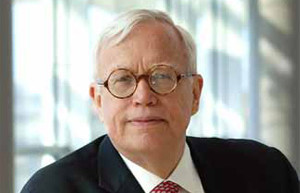
The Hard Evidence on Soft Skills
Psychologists and economists reach consensus on defining the most important soft skills associated with success.
This post is also available in: Spanish
In a recent op-ed in the New York Times, Economist and Nobel Laureate James Heckman argues that public education in the US begins too late, and fails to help children develop “soft skills” that are crucial for long-term success.
He criticizes a single-minded focus in education on developing cognitive skills, at the expense of equally important character skills such as self-control, openness, and the ability to engage well with others. He also criticizes the failure to recognize that children raised in underprivileged environments start school at a major disadvantage.
Heckman argues that effective public measures to reduce inequality must start with high-quality early childhood programs, and include the foundational skills necessary to do well in the classroom. While recognizing that later education is, of course, important, Heckman argues that “It is much more effective and cost efficient to create instead of remediate.”
Read the complete article, “Lifelines for Poor Children,” here.
Psychologists and economists reach consensus on defining the most important soft skills associated with success.
New York Times Magazine article explores the debate and history of teacher effectiveness in the US.
Two documents suggest that investing in the early years of poor children is crucial to long-term success.